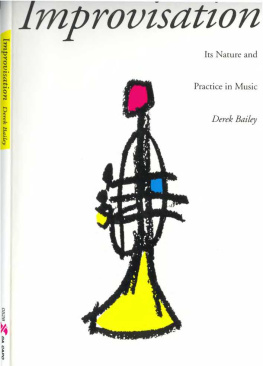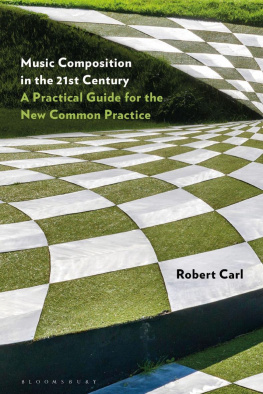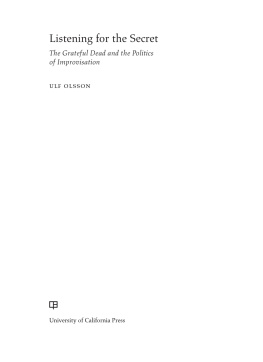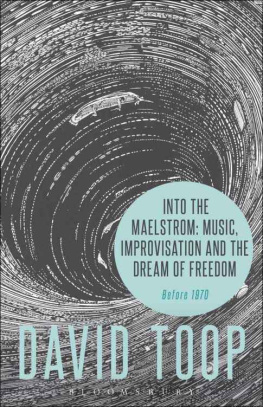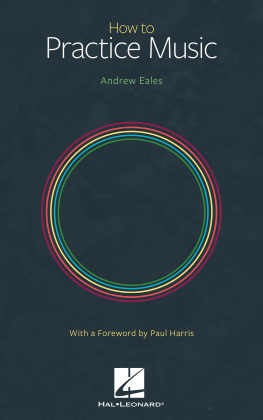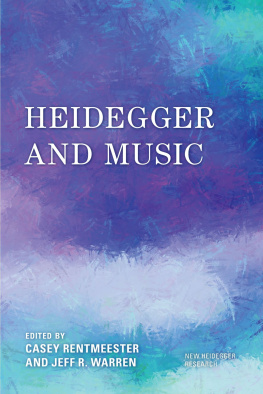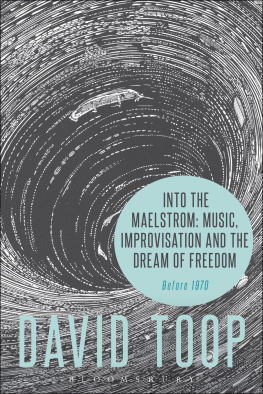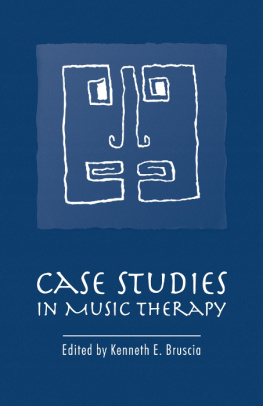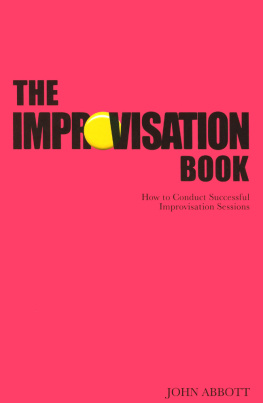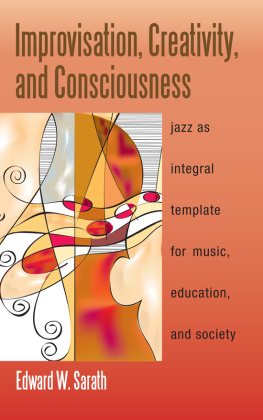Born in Sheffield, Derek Bailey studied music with C.H.C.Biltcliffe and guitar with, amongst others, George Wing and John Duarte. Throughout the 1950s he worked as a guitarist in every kind of musical situation - clubs, concert halls, radio, TV and recording studios. He became increasingly interested in the possibilities of a freely improvised music and by the mid-60s was devoting himself exclusively to this field. He has performed solo concerts in all the major cities of Europe, Japan and North America, played with most of the musicians associated with free improvisation, and recorded over 90 albums on labels including CBS, RCA, Deutsche Grammophon and Island.
In 1970, along with Tony Oxley and Evan Parker, he founded Incus Records, the first independent, musician-owned record company in Britain. In 1976 he established Company, a changing ensemble of improvising musicians drawn from many backgrounds and countries that performs throughout the world. In 1977 an annual Company Week was inaugurated in London. He now divides his time between solo performances, organising and playing in Company events, running Incus, practising, writing and - something he considers essential ad hoc musical activities.
Improvisation: its nature and practice in music was originally written in 1975/6 and first published in 1980. Translations followed in Italian, French, Japanese, Dutch and German, and it has formed the basis of a series of TV films made by Jeremy Marre and screened in several countries in 1992.
examining the idea from every angle - being busy with the idea. Thats the whole thing. Looking for each way to come to the middle of it Han Bennink Ive always tried to provoke the musician to go beyond his habits Earle Brown the accidental, the chaotic. You know, the stuff that you cant control or you cant predict Jerry Garcia its something that should be heard, enjoyed or otherwise, and then completely forgotten Stephen Hicks when you start to play off the top of your head, thats when the truth is really known about people Steve Howe a musician is trying to use whatever liberty he has within the raga to extend the limits ofthat raga without destroying its basic features Viram Jasani the most important thing for an improvisor is to be able to think quickly Jean Langlais it started from what we accept as silence. And every move meant something Tony Oxley the violinists, and the other string players in the group, spurred the harpsichordist on...the harpsichordist might then think of something first and they would follow him Lionel Salter an improvisor wants to have the freedom to do anything at any time John Zorn the basic characteristic of music-making is improvisation Derek Bailey
for
CONTENTS
Bibliography
Index
This book is an account by practicing musicians from various idioms of their use of improvisation, its place in music and their speculations on its nature. The widespread presence of improvisation in music, combined with a scarcity of documentation concerning it, means that any single volume will inevitably be selective. This is an attempt to cover the practice of improvisation in the main areas in which it is found and to reveal those features and characteristics common to all improvisation.
The book is divided into sections ranging from the traditional uses of improvisation (in Indian music, Flamenco and Baroque music) through its uses in church organ playing, in Jazz and in Rock, its relationship to its audience, its relationship to recording, its uses in the classroom and some of the recent developments involving improvisation in contemporary Western composition. It concludes with an examination of some aspects of the recent rise of free improvisation and the correspondences found between all types of improvisation.
Acknowledgements
The number of people who have helped me with the book from its inception through its various stages and revisions is countless. Primarily, I am indebted to all the musicians whose words I quote in the book. They are the book. But I would also like to thank all those musicians whose ideas and words appear without acknowledgement, passages in the book which derive from conversations held with many players over many years.
Among those who helped in a variety of other ways, I have particular reasons to thank Alistair Bamford, Mick Beck, Karen Brookman, Peter Butler, Janice Christianson, Chris Clark, George Clinton, Mandy Davidson, Martin Davidson, John Fordham, Charles Fox, Laurent Goddet, Henry Kaiser, Rudy Koopmans, Frank Long, Paul Lytton, Ulla Lytton, Michael Oliver, Peter Riley, Marion Rout, Beryl Towns and Paul Wilson.
My thanks also to Harcourt Films and Channel 4 Television for permission to use certain quotations from the series of TV films based on the earlier edition of this book. Particularly, I am indebted to the director, Jeremy Marre. His perception of the social and spiritual powers of improvisation lead me to a greater understanding of its universal significance.
Improvisation enjoys the curious distinction of being both the most widely practised of all musical activities and the least acknowledged and understood. While it is today present in almost every area of music, there is an almost total absence of information about it. Perhaps this is inevitable, even appropriate. Improvisation is always changing and adjusting, never fixed, too elusive for analysis and precise description; essentially non-academic. And, more than that, any attempt to describe improvisation must be, in some respects, a misrepresentation, for there is something central to the spirit of voluntary improvisation which is opposed to the aims and contradicts the idea of documentation.
My purpose in undertaking such an unlikely project as, firstly, instigating a series of radio programmes in which practising musicians from different idioms discussed their use of improvisation, and then assembling a book combining these programmes and further discussions with these and other players, was to show the significance of improvisation through the experience of those who use it. My feeling was that there was an important part of improvisation not easily indicated or conveyed by its results, a part which perhaps only those involved in doing it seemed to be able to appreciate or comprehend. This suspicion arose mainly as a result of the almost total absence of comment concerning improvisation and the hopeless misconceptions usually expressed in the comment which does occur.
Defined in any one of a series of catchphrases ranging from making it up as he goes along to instant composition, improvisation is generally viewed as a musical conjuring trick, a doubtful expedient, or even a vulgar habit. So in this book the intention is to present the views on improvisation of those who use it and know it.
Obviously this is not intended as a history of improvisation, a task which, if it were ever attempted, would be a vast and probably endless undertaking. Even about its presence in Occidental music, the most inhospitable area for improvisation, E.T.Ferand in his Improvisation in Nine Centuries of Western Music can write: This joy in improvising while singing and playing is evident in almost all phases of music history. It was always a powerful force in the creation of new forms and every historical study that confines itself to the practical or theoretical sources that have come down to us in writing or in print, without taking into account the improvisational element in living musical practice, must of necessity present an incomplete, indeed a distorted picture. For there is scarcely a single field in music that has remained unaffected by improvisation, scarcely a single musical technique or form of composition
that did not originate in improvisatory practice or was not essentially influenced by it. The whole history of the development of music is accompanied by manifestations of the drive to improvise.
Next page
